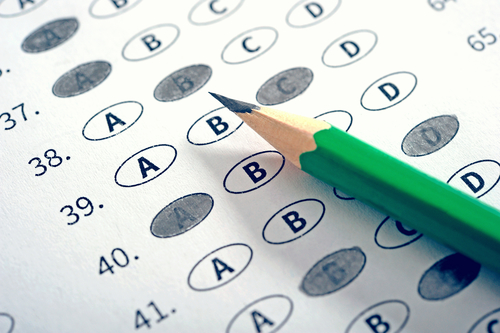
Inside Look: What is the Purpose of Standardized Tests?

With a combined 150-year history, the SAT and ACT having staying power and relevance, as little as students taking them might want to admit. But there are always questions about the tests’ validity and value even though more students than ever before are now taking both exams. Below, let’s examine a few common questions and debunk some popular myths about these standardized tests.
Are Standardized Tests Really Necessary?
Here’s a question probably every high school junior has asked him or herself in the thick of ACT/SAT season. And while, certainly, there are a number of colleges that don’t put much stock in these scores, there is an even longer list of schools that do find standardized test scores immensely helpful in selecting students for admission. In fact, a recent validity study utilizing data from more than 150,000 students at more than 100 colleges and universities demonstrates that the combined use of SAT and high school GPA is a better predictor of college success than HSGPA alone. So, while not the end-all-be-all, for many schools, SAT or ACT scores add a helpful, evaluative element to an application. While these tests will always have their detractors, they don’t seem to be going anywhere as indicators of college readiness. So the short answer, for now, regarding their necessity is yes, they serve an important purpose for many institutions.
What Do They Measure?
At first, glance, it seems rather vague to say that these exams simply “measure college readiness.” But, upon further examination, we see that this has different implications for each test. The ACT is designed to measure what students already know, which is why you will run into basic mathematical and linguistic concepts like algebra and simple grammar. The idea is to see if the student has learned what he is expected to have learned up to this point in his academic career. The SAT, on the other hand, is designed to measure what a student is capable of learning, so it may include some concepts alien to students. For instance, the SAT writing section is quite similar to an AP writing prompt and, naturally, not all students take AP level courses. This certainly doesn’t mean that a student can’t practice for the tests, but rather that he should be prepared to encounter some different types of questions. It is for this reason that many students try their hand at both tests, in order to gain an accurate measure of current college readiness as well as future success.
How Can They Help Students?
These tests do more than just cramp your style during junior year. It’s safe to say that, while somewhat unpleasant, taking standardized tests can actually help indicate weak spots and potential problem areas for students heading into college. Both the SAT and ACT, for instance, include verbal sections that truly test a student’s knowledge of basic grammar. Practicing for these tests can easily highlight gaps in basic knowledge, not to mention provide a chance to learn— or relearn— concepts that have, perhaps, sunk into the distant subconscious. This makes practice and tutoring all the more valuable, as it can provide opportunities to learn concepts that have applications well beyond just the three or four hours you’re in the testing room. This applies to math, science, and reading as well: in all of the test sections, you will find practical concepts that can bolster basic knowledge as well as prep you for the test itself.
Where Do I Start?
Ok, so maybe you’re now convinced that these tests aren’t just made to ruin your junior year. But there can often be confusion about where to start, what to do, and when to do what. There is a lot to consider, so don’t hesitate to reach out to tutors, counselors, college coaches, and other professionals to help you navigate the process. Knowing that both the SAT and ACT are viable options, you might take a practice test to see which works best for you. You can also tailor your prep to cover both tests, and to hit points you need the most help with. With a total of 14 combined test dates over the course of the school year, the SAT and ACT are omnipresent during this time, so having a plan goes a long way toward making test season as fluid as possible. And it’s never too early to start.
iAchieve Learning offers one-on-one tutoring for both the ACT and SAT. For more information about how we can help you, contact us today!



